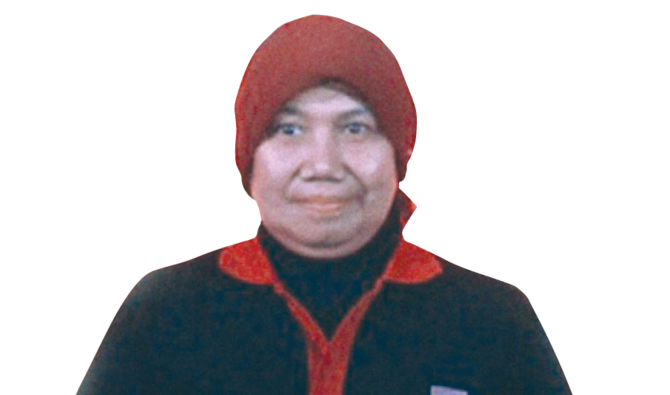JAKARTA: The recent death of Nunuk Nuraini, creator of the world-famous Indomie noodles’ “mie goreng” flavor, has put the previously unsung legend’s name in the limelight.
Followers of the cult favorite instant noodle brand took to social media to express their appreciation for Nuraini and Indomie since the news of her passing broke on Wednesday — with several saying it was their “go-to comfort food” and “got them through their cash-strapped student days” due to its versatility and affordability.
A spokesperson for Indomie producer, Indofood Sukses Makmur (Indofood), Nurlita Novi Arlaida, confirmed Nuraini’s death in a statement, according to Indonesian media reports.
She died on Jan. 27 at the age of 59, but there were no details about the cause of her death.
Nuraini was a flavor development manager at a subsidiary of Indofood, which produces the group’s consumer good products, Indofood CBP Sukses Makmur, where she had worked for almost 30 years.
“Hajjah Nunuk Nuraini passed away and has returned peacefully to Allah,” Arlaida was quoted as saying.
Nuraini graduated from the food technology department of Padjadjaran University in Bandung, West Java.
Her death was first announced in an online forum of the university’s alumni and went viral after a Twitter user, Laila Dimyati, announced the news on the social media platform.
Since then, the post has garnered more than 33,000 retweets and more than 81,000 likes.
HIGHLIGHTS
• Indomie was launched in the 1970s and produced by Indofood, which pioneered instant noodles’ production in Indonesia and is one of the largest instant noodle producers in the world.
• Indomie is available in more than 80 countries.
• Saudi Arabia first began importing it in the 1990s.
• Today, Indomie dominates 95 percent of the instant noodle market in Saudi Arabia.
Mie goreng, which translates as “fried noodles,” is the most popular flavor of the Indomie instant noodle brand.
Dadad Wisesa, a food blogger based in Yogyakarta, said apart from the brand name itself that has become a generic word for instant noodles in Indonesia, it is also the measured-to-the-right-portion of spices that make the mie goreng flavor widely popular and a feast for the taste bud.
“The taste is simple. It tastes just right, not too spicy, not too salty, and not too sweet. I think it is the vegetable oil that makes its flavor different from the other fried instant noodle brands,” Sesa told Arab News on Saturday.
In Yogyakarta, the operators of food stalls specializing in serving instant noodles and another popular Indonesian staple, fried rice, have modified mie goreng flavor into a widely popular dish called "mie dokdok," said Wisesa, whose Javafoodie account on Instagram boasts 194 thousand followers.
“They would add a bit of spiced broth into the supposedly dry fried noodles, so it becomes semi-wet. This modified Indomie mie goreng flavor has become a favorite among university students in the city.”
The mie goreng flavor, inspired by the traditional Indonesian fried noodle dish, was launched in 1982 and became the first dried instant noodle flavor consumed without broth, according to the Indomie website.
Among its most popular broth flavors are chicken soup, chicken vegetable and chicken curry, while the mie goreng flavor has led to the development of more flavors inspired by traditional Indonesian cuisines from different regions in the country.
It was launched in the 1970s and produced by Indofood, which pioneered instant noodle production in Indonesia and is one of the largest instant noodle producers in the world. It has regional offices across the globe and Indomie is available in more than 80 countries.
In an interview with Katadata, a business news site, Indofood CEO Franciscus Welirang said that Indomie consumers in the Kingdom were now in their second generation after Saudis first started consuming the noodles in the 1990s.
Indomie dominates 95 percent of the instant noodle market in the Kingdom, according to the Indonesian consulate general in Jeddah. The instant noodles’ biggest plant in the Middle East and North African region is also located in the city.
Indomie also owes its global popularity to Indonesian students and migrant workers abroad who used the instant noodles for a quick meal.
According to a bulletin from the Trade Ministry, Indomie dominates the instant noodle market in Nigeria, where it has its largest factory in the western African region.
It also dominates the market in Senegal and South Africa, while its factory in Egypt has created 1,000 jobs for locals and produces up to 1.2 million packs of Indomie every day for domestic consumption.



























